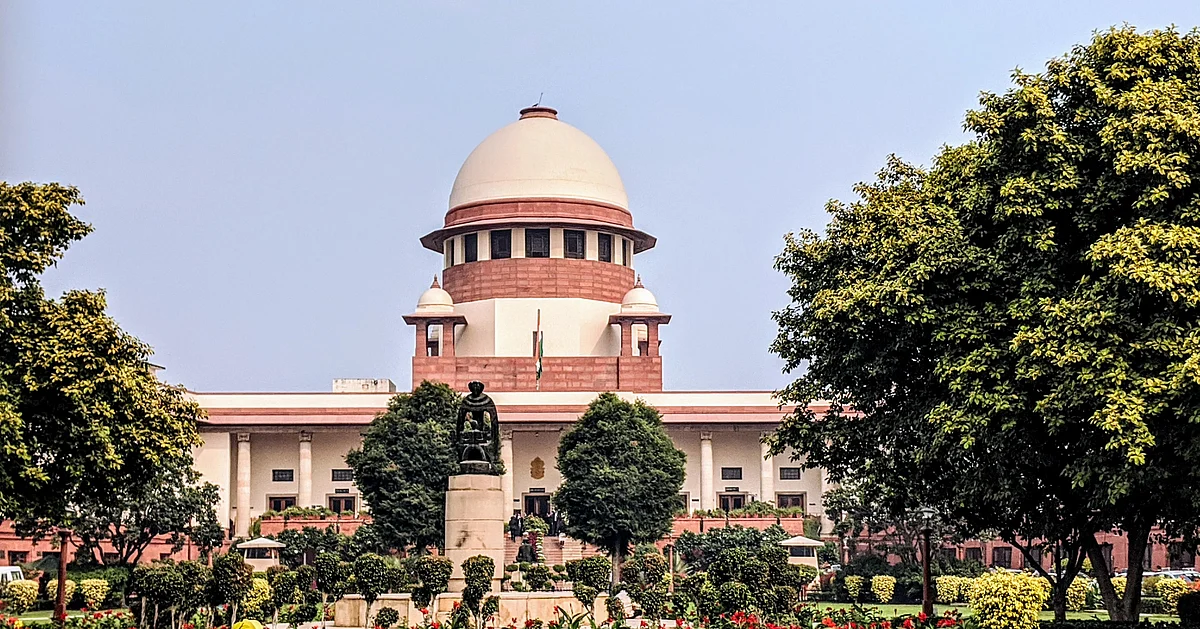Politics
Supreme Court Upholds Karnataka HC Ruling on OBC Certificates

The Supreme Court of India has upheld a Karnataka High Court ruling regarding the eligibility of married women for Other Backward Classes (OBC) certificates, affirming that the issue should be resolved by the State Administrative Tribunal (KSAT). This decision comes after a series of appeals that questioned whether married women could qualify as OBC candidates based on their parents’ or husbands’ caste and income certificates.
The legal dispute originated from a recruitment drive conducted in 2022, which aimed to fill 15,000 Graduate Primary Teacher positions across 35 educational districts. A bench comprising Justices J K Maheshwari and Vijay Bishnoi ruled that the KSAT is the appropriate forum for resolving service-related disputes arising from this recruitment process.
In earlier proceedings, a single-judge bench of the Karnataka High Court ruled in favor of several petitioners, directing that married women applying under the OBC category should be recognized based on caste-cum-income certificates issued in their fathers’ names. This ruling led to the exclusion of 451 candidates who had previously been selected under the OBC category, prompting them to appeal the decision before a division bench.
On October 12, 2023, the division bench reversed the single judge’s order, reinstating the provisional select list dated March 8, 2023. The bench emphasized that the remaining issues should be addressed by the KSAT, stating, “We are of the considered view that the division bench of the high court rightly set aside the single judge’s order and committed no illegality in relegating the matter to the KSAT.”
The Supreme Court supported this position, indicating that the High Court should not have considered writ petitions when an “efficacious alternate remedy” was available. The court stated that “no vested right accrued to candidates whose names appeared only in the provisional select list,” clarifying that the candidates’ request to restore the earlier list was not justified.
The bench has further instructed that the 500 reserved posts be filled in accordance with the KSAT’s final decision, urging the tribunal to resolve the matter “expeditiously, preferably within six months.” It is important to note that the Supreme Court’s judgment only addressed the maintainability of the writ petitions and did not delve into the merits of the case.
This ruling highlights the ongoing complexities surrounding eligibility criteria for government positions in India, particularly regarding caste classifications and the impact on married women. As the KSAT prepares to address the issues at hand, the implications of this case will likely resonate throughout future recruitment processes.
-

 World5 months ago
World5 months agoSBI Announces QIP Floor Price at ₹811.05 Per Share
-

 Lifestyle5 months ago
Lifestyle5 months agoCept Unveils ₹3.1 Crore Urban Mobility Plan for Sustainable Growth
-

 Science4 months ago
Science4 months agoNew Blood Group Discovered in South Indian Woman at Rotary Centre
-

 World5 months ago
World5 months agoTorrential Rains Cause Flash Flooding in New York and New Jersey
-

 Top Stories5 months ago
Top Stories5 months agoKonkani Cultural Organisation to Host Pearl Jubilee in Abu Dhabi
-

 Sports4 months ago
Sports4 months agoBroad Advocates for Bowling Change Ahead of Final Test Against India
-

 Science5 months ago
Science5 months agoNothing Headphone 1 Review: A Bold Contender in Audio Design
-

 Top Stories5 months ago
Top Stories5 months agoAir India Crash Investigation Highlights Boeing Fuel Switch Concerns
-

 Business5 months ago
Business5 months agoIndian Stock Market Rebounds: Sensex and Nifty Rise After Four-Day Decline
-

 Sports4 months ago
Sports4 months agoCristian Totti Retires at 19: Pressure of Fame Takes Toll
-

 Politics5 months ago
Politics5 months agoAbandoned Doberman Finds New Home After Journey to Prague
-

 Top Stories5 months ago
Top Stories5 months agoPatna Bank Manager Abhishek Varun Found Dead in Well









